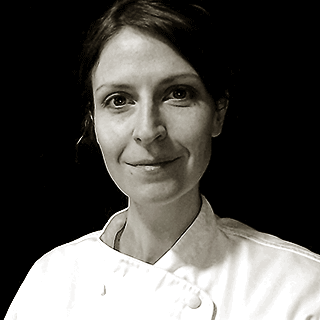Do you enjoy helping others create healthy lifestyles? Are you intrinsically curious about nutritious foods that affect a person’s overall health? If you’re nodding your head now, then you might want to consider a career as a nutritionist!
Unlike the extensive and regulated training required to become a dietitian, the educational path to becoming a nutritionist is often a bit more flexible. Intrigued? Keep reading to explore the type of nutritionist education and training you may need to pursue this highly-rewarding profession.
How to Start as a Nutritionist
Before we dive into nutritionist education to consider, it’s important to note that the path to claiming the title of “nutritionist” isn’t completely black and white. Why? Well, the education requirements are dictated by the state you live in.
For example, in some states, you might not need a formal education to begin this line of work, but in other states, a diploma, degree, master’s degree, or ancillary certificates might be required. Even though there aren’t national education standards to become a nutritionist, a formal education in nutrition and wellness might give you the authority you need to succeed—especially if you aspire to open up a private practice.

The appropriate training and education could also arm you with the knowledge base and competency you need to be viewed as a trusted professional in your community. Now that we’ve provided you with some context, let’s examine the ways you can advance your career as a nutritionist!
Check out Escoffier’s The Ultimate Dish Podcast Episodes on Wellness and Nutrition
Obtain a Nutrition-Related Degree
Since the field of nutrition and wellness is relatively broad, it’s important to look for a program that places an emphasis on nutrition first.
Escoffier’s Online Associate Degree in Holistic Nutrition and Wellness is a comprehensive, 84-week program that can help students explore food consumption and diet through the lens of human nutrition as a science, and examine specialized diets and wellness concepts as well as the business skills needed to be successful in practice.
“The holistic nutrition and wellness program can provide students the tools needed in their journey to achieve health and wellness in their daily lives. We provide the basis and knowledge on what health truly means while providing the proper cooking techniques to help incorporate healthier options into their dishes.”*
Rachel Rancourt-Hobbs, Escoffier Chef Instructor
Let’s take a look at some of the essential topics that may be covered in Escoffier’s Holistic Nutrition and Wellness Associate Degree program.
Culinary Foundations
Discussing the role of cuisine is an essential tenet of the degree curriculum—which is important, especially since most nutritionists will need to feel comfortable cooking a wide variety of meals that address clients’ needs. Through this material, students can grasp concepts such as fundamental knife skills, mise en place, conversion methods, yield cost analysis, portion sizing, and food costing.
Nutritional Cooking and Special Diets
Again, most nutritionists may need a strong understanding of different types of nutritious foods and how they impact a client’s overall health. Escoffier’s curriculum takes a deep dive into major nutrients, nutritional compounds, and classical cooking techniques that might cater to specific dietary restrictions and food sensitivities.
Holistic Health and Wellness Concepts
As part of the degree program, students can dive into holistic nutrition by examining food sources, global nutritional issues, and how the role of food impacts the body’s complex systems. In addition, they can begin to explore how traditional wellness practices and factors like sleep, stress management, meditation, and herbology can impact how the whole being functions. For students who are interested in becoming a holistic nutritionist, this coursework can provide a great baseline foundation for career advancement. Again, be sure to check the requirements in your state to become a nutritionist.
Entrepreneurship and Coaching Techniques
On top of being well-versed in foundational nutrition and wellness practices, most nutritionists may also need to possess strong entrepreneurial, communication, and coaching skills to influence their clients and help them meet their goals..
This coursework covers psychology-based concepts and interpersonal techniques that could enable more productive interactions with clients. Students also unpack the inner workings of business, such as leadership, ethics, planning, and pricing.
“We’re uniquely positioned to help students navigate cooking for health and how other forces influence a person’s lifelong well-being. We also discuss fundamental coaching techniques they may use to assist others in navigating their wellness journey. Learning these skills can help students pursue multiple avenues relevant to health and wellness – from being a part of a culinary team that creates dishes for companies or organizations looking to nourish their employees/customers, community food education programs, coaching, and health educators.”*
Stephanie Michalak White, Escoffier Lead Chef Instructor
What to Look for in Nutritionist Education
As you begin your search to find a degree program that fits your needs, budget, and interests, there are specific criteria you can look for that might make your decision process easier, such as the following:
Accreditation
One of the best ways to ensure a high-quality education is by attending an accredited school, like Escoffier, which is the only U.S. accredited institution offering 100% online degrees with culinary classes and hands-on industry externships.**
Not only can accreditation provide an extra layer of credibility to your resume, but it can give you access to financial aid if you apply and qualify, which is often only available if a school is accredited.
At Escoffier, financial aid is available to those who apply and qualify! This includes access to federal grants, federal loans, and other scholarships and grants.
Online Learning Options
Perhaps you’re ready for a big career change aligned with your purpose and want to take the next step towards a degree, but need to juggle other commitments like childcare or a full-time job to pay the bills. For many adults looking to transition into a new profession, an online program is a major perk.
Escoffier’s Associate of Occupational Studies Degree in Holistic Nutrition and Wellness is 100% online with a hands-on industry externship—all you need is a passion for nutrition, a private workspace, a functional cooking space, and around 15-23 hours per week to allocate to weekly assignments, depending on program, credential and personal pace.

In Escoffier’s Online Associate Degree in Holistic Nutrition and Wellness program, students can explore nutritionally-dense recipes to pass on to future clients.
Plus, learning to adapt to a virtual environment could prepare you to launch a more remote business in the future, like working with clients virtually!
Externships
It’s one thing to acquire an education from a textbook, but it’s even more effective if you apply those teachings in a real-world setting. Students who graduate from the Associate Degree in Holistic Nutrition and Wellness program must complete two industry externships!
This type of immersion into the workforce as a future nutritionist is invaluable. Not only can students refine their skills, but they can also begin to build lasting business relationships with professionals in the health and wellness field!
Degree vs. Diploma
While a degree may provide a more comprehensive education exploring topics in depth, a diploma might suit you better, depending on your goals. For instance, if you’re looking to work in marketing for a wellness brand, you may not need as much education in some of the topics that would apply to someone who wants to become a health coach or nutritionist.
In addition to the Holistic Nutrition and Wellness Degree program, Escoffier also offers a Diploma in Holistic Nutrition and Wellness. This shorter program may serve as a great introduction to the field of holistic nutrition and wellness, and students who decide to pursue the associate degree can use their diploma course credits toward their degree.
How to Become a Certified Nutritionist
Although you can likely start working as a nutritionist right away with a degree under your belt (depending on the state you live in) a special certification could give you more credibility when it comes to a specific concentration of nutrition like sports nutrition, weight loss, pediatric nutrition, and oncology nutrition.
For those who desire to become a Certified Nutrition Specialist (CNS) an additional nutritionist certification would be required, such as a master’s degree in nutrition or a similar field, plus additional hours of practice under qualified supervision.
Take the Next Step With a Degree in Holistic Nutrition
When it comes to starting your career as a nutritionist, the first step begins with a thirst for knowledge, which can ultimately help you establish a credible business down the line. By empowering yourself with nutritious cooking skills, health and wellness concepts, and coaching techniques, you can ultimately provide your clients with more value.
If you’re ready to begin your journey as a nutritionist and find out more about Escoffier’s online Holistic Nutrition & Wellness programs, contact our Admissions Department today.
Enjoyed this article? Read these next:
- What Is Holistic Health?
- How to Become a Health Coach
- How to Start a Career as a Holistic Health Coach
*Information may not reflect every student’s experience. Results and outcomes may be based on several factors, such as geographical region or previous experience.
**Our Boulder, CO campus is the only accredited institution in the United States to offer both fully online diploma and degree programs with culinary classes and hands-on industry externships. We are accredited by ACCET – A Partnership for Quality®. ACCET is listed by the U.S. Department of Education as a nationally recognized accrediting agency.

 “The holistic nutrition and wellness program can provide students the tools needed in their journey to achieve health and wellness in their daily lives. We provide the basis and knowledge on what health truly means while providing the proper cooking techniques to help incorporate healthier options into their dishes.”*
“The holistic nutrition and wellness program can provide students the tools needed in their journey to achieve health and wellness in their daily lives. We provide the basis and knowledge on what health truly means while providing the proper cooking techniques to help incorporate healthier options into their dishes.”* “We’re uniquely positioned to help students navigate cooking for health and how other forces influence a person’s lifelong well-being. We also discuss fundamental coaching techniques they may use to assist others in navigating their wellness journey. Learning these skills can help students pursue multiple avenues relevant to health and wellness – from being a part of a culinary team that creates dishes for companies or organizations looking to nourish their employees/customers, community food education programs, coaching, and health educators.”*
“We’re uniquely positioned to help students navigate cooking for health and how other forces influence a person’s lifelong well-being. We also discuss fundamental coaching techniques they may use to assist others in navigating their wellness journey. Learning these skills can help students pursue multiple avenues relevant to health and wellness – from being a part of a culinary team that creates dishes for companies or organizations looking to nourish their employees/customers, community food education programs, coaching, and health educators.”*

